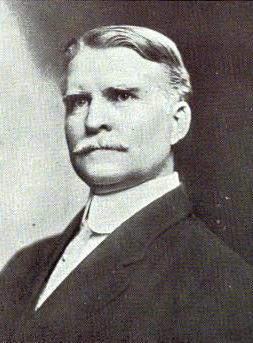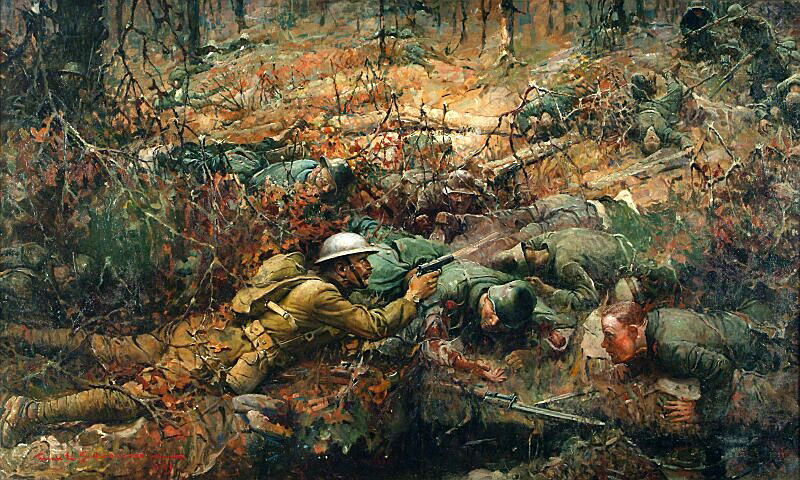World War I ~ Lesson 5 United States World War I Heroes
John J. Pershing was General of the Armies during World War I. Pershing led nearly two million men under his command. Even though the European military forces wanted to divide the American troops and place them under foreign command, Pershing kept the American forces independent. Pershing also refused to allow American soldiers on the front line before they were fully trained. Because of this many lives were saved. |

|
Lawrence Tyson was brigadier general over all Tennessee National Guard troops. He was assigned to the 59th Brigade, 30th Infantry Division. His troops were among the first to go to France in May 1918. They were also among the first to enter Belgium in July 1918. The 59th was the first Allied brigade to break through the Hindenburg Line. They then moved to capture several French villages. The 59th received nine Medals of Honor during the war. This was the most of any single brigade in World War I. |
 |
When Alvin C. York was drafted into the army, he was strongly opposed to war because of his faith. York was given a 10 day leave to reconsider. York returned with a commitment to be a good soldier. Under the command of Sergeant Early, York who had just been promoted to corporal, and thirteen privates were ordered to go behind the German lines to take out the machine guns. The group reached the German headquarters and captured a large group of German soldiers who were planning an attack on the Americans. While Early and his men were guarding the prisoners, machine guns began peppering the group killing six Americans and wounding three others. The loss of the nine soldiers put Corporal York in charge of the seven remaining U.S. soldiers. York ordered his soldiers to guard the prisoners while he made his way up the ridge to stop the Germans. Six German soldiers charged York. After firing all his rounds, he drew his .45 Colt automatic pistol and shot all six soldiers before they could reach him. The exchange ended when German First Lieutenant Paul Jürgen Vollmer surrendered his unit. In the end, York captured 132 German prisoners. Because of this act of heroism, the Americans were able to capture the Decauville Railroad. York was promoted to Sergeant and awarded the Distinguished Service Cross for heroism. Later General John J. Pershing awarded York the Medal of Honor. Eventually York was given 50 decorations for his deeds. York commented that a higher power had guided and watched over him. |
 |